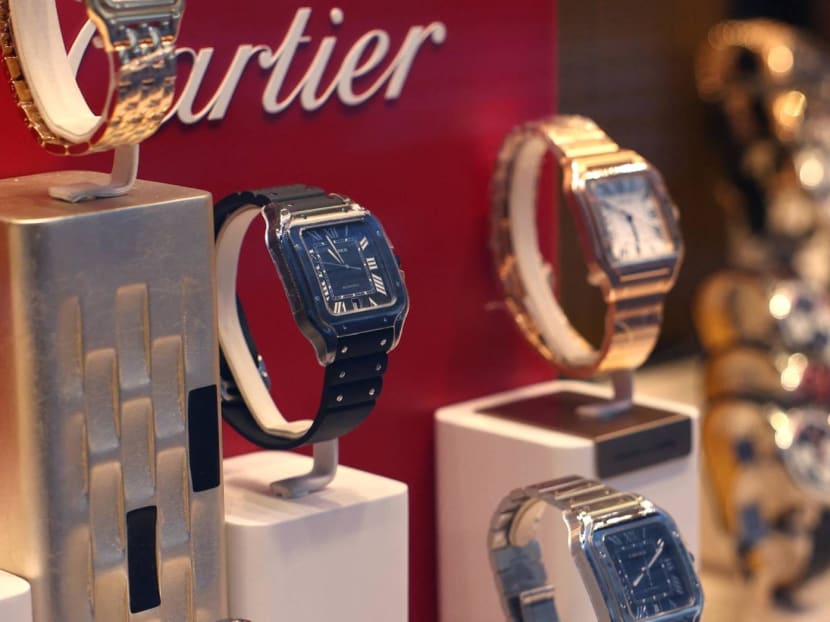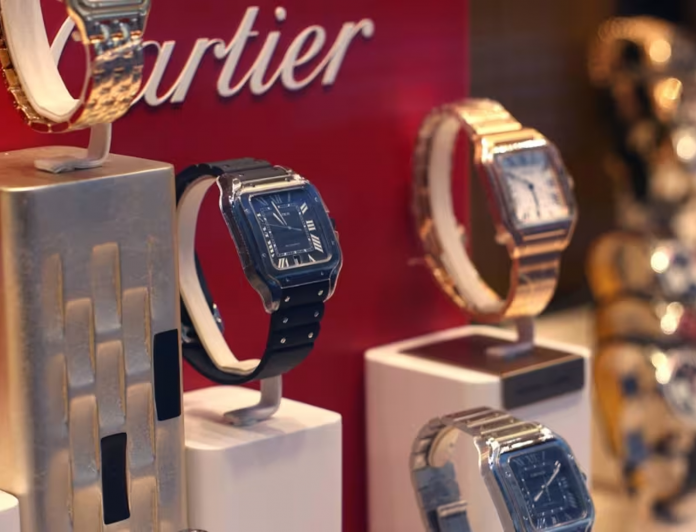In a luxury market marked by increasing volatility and tariff-driven cost pressures, Swiss luxury powerhouse Richemont has taken a notably cautious stance regarding price increases. During its full-year earnings report on May 16, Richemont’s Chairman Johann Rupert clearly ruled out sudden, sweeping price hikes for the group’s prestigious portfolio of brands, including Cartier and Van Cleef & Arpels. Instead, Rupert conveyed a strategy of measured and gradual price adjustments that primarily aim to reflect currency fluctuations and inflationary pressures while maintaining a more uniform global pricing model. This approach is designed to discourage customers from crossing borders or turning to alternative markets to seek better deals, which has become an ever-growing concern for luxury brands amid globalisation and digital commerce.

This cautious pricing policy is especially significant considering the backdrop of recent tariff changes, particularly in the US, that have shaken the luxury sector. Several competitors, including Hermès, have already announced price increases in the US to counterbalance the impact of new import tariffs. Meanwhile, brands under LVMH, such as Louis Vuitton, have reportedly introduced localized price hikes in certain regions to maintain margins. However, Richemont is charting a different course, focusing on stability and the long-term health of its brands rather than immediate price gains. Johann Rupert’s comments underscore a broader philosophy of maintaining brand equity and customer loyalty by avoiding sudden shocks to pricing, even amid economic headwinds and geopolitical uncertainties.
Maintaining pricing consistency amid global challenges
Rupert underscored the inherent risks that arise from inconsistent pricing across different geographic regions. He explained that substantial disparities can prompt savvy customers to shop across borders or online, undermining the perceived value of the brand and complicating inventory and supply chain management. “We will not make sudden rapid price increases,” Rupert stressed, emphasizing that while Richemont acknowledges the need to adjust prices due to currency volatility and inflation, its overarching goal is to adopt a universal pricing approach that promotes fairness and discourages cross-border arbitrage.
This disciplined stance stands in contrast with other luxury houses that have implemented more aggressive price hikes recently. Since 2019, many luxury brands, including iconic names such as Chanel and Dior, have pushed prices up by high double-digit percentages. This escalation followed the pandemic-fueled boom in luxury demand, during which brands capitalised on heightened consumer willingness to spend on high-end goods. However, as the market normalizes and customers become more price sensitive, some brands have faced backlash over perceived mismatches between price tags and product innovation or quality improvements. Analysts note that Richemont and Hermès have distinguished themselves by adopting a more measured approach, focusing on upholding product excellence and fostering brand loyalty rather than rapidly inflating prices.
This strategy could help Richemont maintain its competitive advantage over time, especially as consumers become more discerning and global shopping options increase. By moderating price increases, Richemont aims to avoid alienating its customer base while still protecting margins and accounting for rising costs.
Strong jewellery sales offset watchmaking struggles
Despite broader economic headwinds and geopolitical pressures, Richemont’s jewellery division remains a powerhouse within the group’s portfolio. The Swiss conglomerate reported an 11 percent increase in jewellery sales for the quarter ending March 31, excluding currency impacts, reaching €3.7 billion (approximately US$4.14 billion). This growth was primarily driven by Cartier, which continues to outperform its peers and stands as a dominant player in the luxury jewellery market. Cartier’s consistent appeal has helped the group offset pressures elsewhere, reinforcing Richemont’s reputation for resilience in challenging times.
In stark contrast, Richemont’s watchmaking segment has experienced difficulties, with sales declining 11 percent during the same period. The luxury watch market as a whole has faced softening demand, particularly in key regions affected by economic uncertainties. Nevertheless, Richemont’s overall group sales still increased by 7 percent to €5.2 billion for the quarter, buoyed by strong double-digit growth in most regions except Asia-Pacific, where sales declined by 7 percent, reflecting ongoing challenges in China and nearby markets.
Jean-Philippe Bertschy, head of Swiss equity research at Vontobel, praised Cartier’s resilience and growth. He noted that Cartier’s watch sales grew by 8 percent for the 2025 financial year, even as the overall luxury watch market contracted by 13 percent. “Growth and profit are spectacular, especially compared to key competitor LVMH,” Bertschy commented, highlighting how Richemont’s diversified brand portfolio and strategic management helped it withstand sector-wide pressures better than many competitors.
Navigating trade tensions and market uncertainties
Richemont’s annual operating profit fell by 7 percent to €4.5 billion, a decline largely attributed to the downturn in the watchmaking division. Nonetheless, Johann Rupert expressed cautious optimism about a potential recovery in the Chinese luxury market, which remains critical to the global luxury sector’s future. He acknowledged that ongoing US-China trade tensions, however, cloud the timeline for this recovery and inject a high degree of uncertainty into the global business environment.
Rupert voiced criticism of the US tariff regime, describing it as transactional and unpredictable, complicating long-term planning for global companies like Richemont. Still, he expressed hope that rational voices within the US Treasury would prevail and avoid a full-scale disruption of international trade flows. This pragmatic stance illustrates Richemont’s broader strategy of steady, long-term navigation through geopolitical turbulence, balancing cautious price management with ongoing investments in brand strength and enhanced control over its supply chain.
Richemont’s recent investments, including acquisitions of silk manufacturers and tanneries, signal a commitment to greater vertical integration. This effort aims to reduce reliance on external suppliers and improve quality control, an important factor in sustaining luxury standards amid market challenges.
A steady course in turbulent times
Richemont’s decision to eschew dramatic price increases reflects its focus on preserving brand value and fostering long-term customer relationships in an environment marked by economic shifts and geopolitical tensions. While tariffs, currency fluctuations, and shifting consumer behavior present ongoing challenges, the group’s robust jewellery sales and prudent pricing strategy position it well to navigate these uncertainties.
By prioritizing consistency over quick profit grabs, Richemont reinforces its reputation as a luxury group committed to quality, heritage, and thoughtful growth. As global luxury markets continue to evolve, Richemont’s balanced approach may prove key to sustaining competitiveness and relevance in an increasingly complex and interconnected world.










